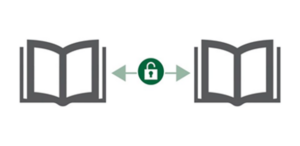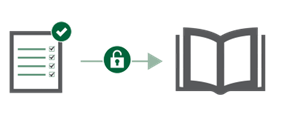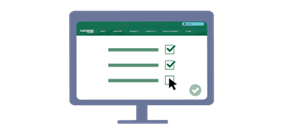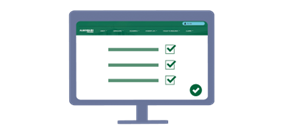Confused by the Lingo? Let’s Go Over Student Course Registration in Thesis SM
Posted on Wednesday, May 29th, 2024

Algonquin College will soon have a new Student Information System (SIS) called Thesis SM. As with any new tool, there is sure to be a learning curve for people switching from the old SIS, GeneSIS, to the new one—but don’t worry! We’ll help you become familiar with Thesis SM so you can hit the ground running when it goes live.
With that being said, we want to tell you about six important terms related to Student Course Registration that will help you better understand how this process will work.
Pre-requisite
A Pre-requisite is a course (or courses) that learners must complete to become eligible for another course.
For example, learners in the Autism Studies program can only register in Principles of Applied Behavioural Analysis (FAM2020) after completing Understanding Autism Spectrum Disorder (FAM2010).
Co-requisite

A Co-requisite is a course (or courses) that learners must complete concurrently with another course.
For example, learners in the Community and Justice Services program can only register in Introduction to Sociology (COR1928) if they also register in Introduction to Psychology (COR1756).
Non-course Requisite

Non-course Requisites are conditions that are not related to courses and that learners must meet to register in a course. Non-course Requisites include belonging to a certain cohort or having a security clearance.
For example, learners can only register in Transition to Practical Nursing Theory and Simulation (NSG8017) if they have worked as Personal Support Workers in Ontario on a regular basis within the past five years.
Module Block

A Module Block is a recommended group of courses for learners to take concurrently in an Academic Period. Module Blocks are called Levels in GeneSIS.
For example, Thesis SM recommends that learners in the first term of the Cyber Security Analysis program take Threat Management (CST8801), Traffic Analytics (CST8802), Vulnerability Management (CST8803), Security Devices and Appliances (CST8804), and Applied Cryptography (CST8805).
Pre-enrolment

Pre-enrolment is the phase in which learners can reserve spots in courses before official registration begins.
Re-enrolment

Re-enrolment is the phase in which learners can officially register in the courses they reserved during Pre-enrolment for an upcoming Academic Period. In GeneSIS, this is called Course Registration.
“I don’t like these terms. Can we change them?”
Currently, we can’t change Course Registration terms in Thesis SM because they’re part of the base product’s set-up. However, our team has identified this matter as an opportunity for product improvement, and we expect there will be future developments.
We understand that it can take a while to get used to new terminology, so we’re here to help make this transition as smooth as possible.
To gain more insight on these terms, check out our May 2024 R3 Showcase event. Haya Majbour, Business Analyst, went over the new terminology and compared the current and future state of Student Course Registration.
*
Have more questions? Check out our Glossary and our FAQ page to learn more about the R3 Project!
- Posted in
- News R3